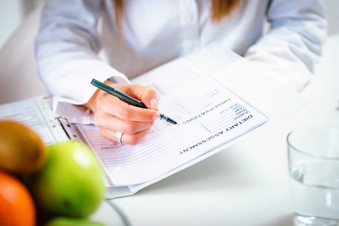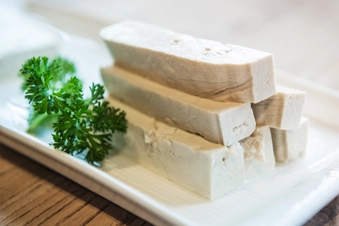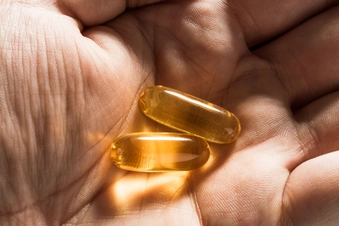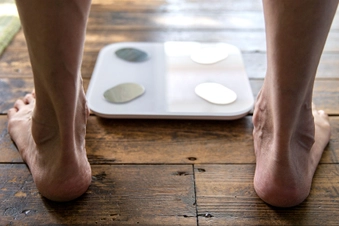Strategies for Managing IgA Nephropathy Symptoms Through Diet

Go Easy on the Sodium
This is a mineral in salt. You need a little every day to live. But too much sodium can stress your kidneys. Your doctor might suggest a low-sodium diet to lower your blood pressure and ease symptoms like swelling. Everyone is different. But in general, people with kidney disease should get less than 2,300 milligrams of sodium a day. That’s about 1 teaspoon of salt.

Read the Labels
You probably don’t shake a teaspoon of salt onto your food every day. But you might get more sodium than you think if you eat lots of processed foods. To stick with your daily goal, look for sodium on the nutrition facts label. Skip or limit anything with a daily value of 20% or higher per serving. That’s considered a high-sodium food. Instead, check for labels that say low or no sodium, low or salt-free, unsalted, or lightly salted.

Spice Things Up
Use herbs and spices to season your meals without the sodium. Try basil, black pepper, tarragon, or thyme. Got curry in your cabinet? Use it on carrots or chicken. Get creative to see what tickles your tastebuds. Ask a dietitian who specializes in kidney disease for more tips.

Be Careful With Salt Substitutes
Get the OK from your doctor before you use anything labeled “salt substitute.” These sodium-free products often have potassium. This mineral can build up in your blood when you have kidney disease. And when mixed with certain blood pressure meds, salt substitutes might raise the amount of potassium in your blood to unsafe levels.

Eat More Plants
There’s growing evidence that plant-based diets are good for people with kidney disease. You don’t need to go completely meat-free. But you should focus on including lots of heart-healthy foods packed with fiber. That includes fresh or frozen fruits and vegetables, beans, nuts, and whole grains.

Ask Your Doctor About Going Gluten-Free
If you have IgA nephropathy, you’re more likely than people without the condition to also have celiac disease. That’s an autoimmune disorder triggered by gluten -- a protein found in wheat. If you have both conditions, going gluten-free may help your bowels and your kidneys. Not sure if you have a problem with gluten? Your doctor can run some tests to find out.

Eat Less Saturated Fat
A diet low in saturated fat may help control your cholesterol and lipid levels. Lipids are a type of fat in your blood. You’ll find saturated fat mostly in animal products like butter, cheese, and red meat. But you’ll also want to limit foods made with plant-based oils like coconut and palm. Instead, opt for healthy unsaturated fats found in foods like avocados, olive oil, and nuts.

Make Your Own Meals
Frozen meals and fast food tend to have a lot of added salt and sugar. If possible, limit prepared meals and cook for yourself more often. That’ll give you better control over what ingredients you eat. Need ideas for what to make? A dietitian can help you come with a meal plan that works for you.

Limit Alcohol
Moderate to light alcohol use may be OK for some people. That’s generally two drinks or less a day for men and one or less for women and older adults. Too much alcohol can overwork your kidneys and boost your blood pressure. It may also affect how your meds work. Your doctor can let you know how much alcohol, if any, is safe for you.

Watch Out for Phosphorus and Potassium
These two minerals are found in lots of natural and processed foods. They aren’t a problem for everyone with IgA nephropathy. But both phosphorous and potassium can build up in your blood if your kidneys don’t work very well. Ask your doctor if this is an issue you need to worry about. If so, they’ll let you know which foods and drinks you may need to limit.

Drink the Right Amount of Water
Your kidneys get rid of extra fluid in your body. But they can’t do that very well when they’re damaged. How much is too much? That depends on lots of things. You’ll need to consider how much you move around, how serious your kidney disease is, or if you’re on dialysis. Whether you’re sick, pregnant, or breastfeeding also matter. Ask your doctor how much you need.

Be Picky With Protein
Your doctor might suggest a low-protein diet (if you’re not on dialysis). This can lighten the load on your kidneys. Certain kinds of protein may also be more protective than others. Some studies have shown that people who swap some animal protein for the soy-based kind leak less protein in their urine. A diet high in plant protein also may help people with kidney disease live longer, but more research is needed.

Ask About Omega-3 Fatty Acids
There’s conflicting evidence whether prescription-strength fish oil, which has anti-inflammatory properties, may slow kidney damage in IgA nephropathy. It’s not a regular part of everyone’s IgA nephropathy treatment. But it might be worth a try if there’s a good chance your kidney disease will get worse. Talk to your doctor before you try a new vitamin or supplement. They’ll help you decide what’s safe.

Watch Your Weight
If you have IgA nephropathy, your odds of health problems and death go up with a very low or high body mass index (BMI). Talk to your doctor if you can’t seem to put on pounds or you have trouble with obesity or being overweight. Your health care team can help.
Show Sources
IMAGES PROVIDED BY:
- Peter Dazeley / Getty Images
- d3sign / Getty Images
- Elva Etienne / Getty Images
- Solskin / Getty Images
- bhofack2 / Getty Images
- TEK IMAGE / SCIENCE PHOTO LIBRARY / Getty Images
- Image Source / Getty Images
- Stevica Mrdja / EyeEm / Getty Images
- Seth Ryan / EyeEm / Getty Images
- Wat’hna Racha / EyeEm / Getty Images
- supersizer / Getty Images
- HUIZENG HU / Getty Images
- MirageC / Getty Images
- Harry Wootten Photography / Getty Images
SOURCES:
Clinical and Experimental Nephrology: “New strategies and perspectives on managing IgA nephropathy.”
National Institute of Diabetes and Digestive Kidney Diseases: “IgA Nephropathy,” “Eating Right for Chronic Kidney Disease,” “Diet & Nutrition for Adults with Advanced Chronic Kidney Disease.”
National Kidney Foundation: “Spice Up Your Diet,” “6 Tips To Be 'Water Wise' for Healthy Kidneys.”
Journal of Translational Medicine: “Chronic diseases, inflammation, and spices: how are they linked?”
Cleveland Clinic: “Are Salt Substitutes a Healthy Way to Lower Your Sodium Intake?”
Central European Journal of Immunology: “IgA nephropathy associated with coeliac disease.”
Pediatrics: “IgA Nephropathy as the Initial Presentation of Celiac Disease in an Adolescent.”
CDC: “Cholesterol: Cholesterol Myths and Facts.”
Nutrients: “Dietary Approaches in the Management of Diabetic Patients with Kidney Disease.”
American Journal of Kidney Diseases: “The Associations of Plant Protein Intake with All-Cause Mortality in CKD.”
UpToDate: “IgA nephropathy: Treatment and prognosis.”